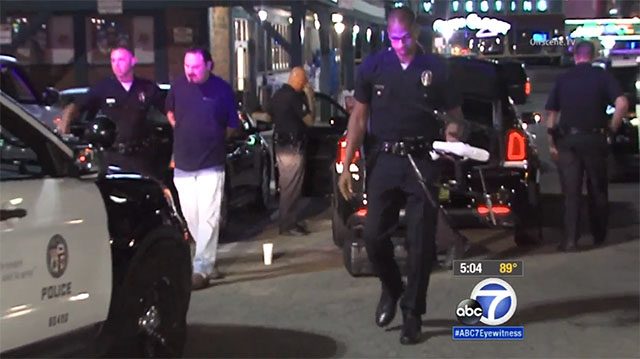
Three years in jail seems a little harsh for not paying $5 to register the toy you bought your kid for Christmas, but the FAA is anxious to appear to be taking a tough stand on the infamous “rogue drones” and “bad actors.” Even more concerning than a potentially bankrupting fine and jail time is the FAA’s direction that law enforcement may use “deadly force” against any drone or drone operator who appears to present an extreme risk to the safety of the National Airspace (NAS.) Given all of the recent hyperbole around the danger that drones actually pose, a nervous agent may interpret extreme risk differently than most people.
The FAA is emphasizing enforcement in every statement. They have made some well-publicized steps against commercial drone operators, such as the huge fine levied this fall against SkyPan International for unauthorized flights. While they have not published the number of enforcement cases brought against recreational drone operators to date, the FAA has said that the number is greater than 20. Recent work with the Department of Homeland Security and CACI International to develop drone detection technology points out the FAA’s troubling focus on punitive enforcement: instead of seeking technology that would keep drones away from airports, they have invested in technology that pinpoints the drone operator.
But while the FAA talks tough, an article by Leland Beck on his Federal Regulations Advisor blog points out that the realities of enforcement make it a lot harder to arrest drone operators than the text of the law might indicate. Beck says that the effect of the registration deadline for the drone community “may be less than expected on multiple fronts.” Beck, who is admitted to the bar of the Supreme Court of the United States, the United States Courts of Appeals for the District of Columbia, First, Sixth, and Tenth Circuits, and the United States District Courts for the District of Columbia and the Northern District of Ohio, has worked for both the Department of Justice and the Department of Homeland Security. His experience indicates that a rush of enforcements are not on the way:
The FAA stated on February 16 that over 342,000 registrations had been filed, but that seems far short of industry expectations for sales over the past holiday season alone. At the same time, do not expect the FAA to sweep the skies with civil penalties of up to $27,500 or seek many indictments leading to criminal fines of up to $250,000 and ; imprisonment for up to three years. Realities are slightly more difficult than the law suggests.
In conversation with DRONELIFE, Beck says that it just isn’t that easy for the FAA to find and prosecute drone operators who have not registered. “Both criminal and civil enforcement are more difficult than the FAA would like us to believe for several reasons. First, the FAA has limited resources. Second, actual evidence and the burden of proof of complicated. Third, felony criminal violations require grand jury approval and Justice Department prosecution, among all other criminal cases. Thus, the FAA can only go after the most egregious violations, such as intrusions that threaten lives.”
So the FAA probably can’t throw the average operator in jail. But while the FAA can’t possibly cover every town with enforcement officers, shortly after the drone registration program was introduced the FAA issued a fact sheet to Law Enforcement officers, asking their help in enforcing drone registration. The fact sheet instructed officers to engage in a “stop and talk” process, identifying unregistered drones and then calling in the FAA officer when required; but was ambiguous in discussing where FAA drone regulations may blur into a local crime, such as when a drone operator violates a local ordinance by flying near a specific restricted site, or uses a drone to record someone without permission. The environment of differing state and local drone regulations make this even more confusing for both operators and law enforcement, and could create an environment of harassment for drone operators. The registration – or lack there of – may serve to give law enforcement a reason to question operators, regardless of whether or not they can actually be held to account over the registration program.
The problem with a law proposing exaggerated penalties is not necessarily that citizens will be subject to them. The problem is that exaggerated penalties may lead to an exaggerated perception of the severity of the crime: and the drone industry may suffer from an additional layer of confusion preventing new operators from taking up the hobby. Reports of dropping sales may indicate that this is already taking place since drone registration; more publicity about enforcement won’t help the problem.
Miriam McNabb is the Editor-in-Chief of DRONELIFE and CEO of JobForDrones, a professional drone services marketplace, and a fascinated observer of the emerging drone industry and the regulatory environment for drones. Miriam has penned over 3,000 articles focused on the commercial drone space and is an international speaker and recognized figure in the industry. Miriam has a degree from the University of Chicago and over 20 years of experience in high tech sales and marketing for new technologies.
For drone industry consulting or writing, Email Miriam.
TWITTER:@spaldingbarker
Subscribe to DroneLife here.